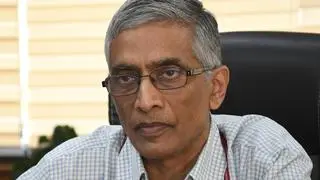Fourteen years after the 2002 massacre of 69 people at Gulbarg Society here, including ex-Congress MP Ehsan Jafri, a special trial court, on Friday, sentenced 11 of the 24 convicts to life imprisonment, and awarded 10 years’ jail to one convict and seven years’ to 12 other convicts under Section 302, CrPC.
The court had, on June 2, pronounced these 24 people as convicts and acquitted 36 others as not-guilty due to “lack of evidence”. VHP leader Atul Vaidya was among those sentenced to seven years’ imprisonment.
Pronouncing the quantum of punishment, Sessions Judge PB Desai, who had on June 2 rejected the prosecution’s conspiracy charge, said no one was being sentenced to capital punishment as the convicts did not pose any danger to the society after their release on bail earlier. Many of the convicts had already been behind the bars for varying number of years and were out on bail.
Reacting to the ruling, Zakia Jafri, widow of the late Congress leader, expressed “dissatisfaction” over the verdict, saying all the convicts were part of the same riot mob who committed the heinous crime and should have, equally, been sentenced to life imprisonment. “Those acquitted earlier should also have been similarly brought to justice.” She said she would consult her lawyers on the next course of action.
On the other hand, the next of kin of those sentenced, who were present in large numbers in and around the court premises, were seen crying. Some of them dubbed the day as a “Black Friday” and the ruling as “miscarriage of justice”.
Those awarded life imprisonment were: Kailash Dhobi, Yogendrasinh Shekhawat, Jayeshkumar Jingar, Jayesh Parmar, Krishnakumar Kalal, Raju Tiwari, Naran Tank, Lakhansinh Chudasma, Dinesh Sharma, Bharat Rajput and Bharat Shitalprasad.
One convict, Mangilal, would serve a 10-year sentence.
Those who got seven-years’ imprisonment were: VHP leader Atul Vaidya, Surendrasinh, Dilip Parmar, Babu Marwadi, Sandip Sonu, Manish Jain, Dharmesh Shukla, Alpesh Jingar, Prakash Padhiar, Mukesh Pokhraj, Kapil Mishra and Dayabhai Dhobi.
On February 27, 2002, some miscreants had set on fire a second class sleeper coach of Sabarmati Express at Godhra railway station in Gujarat, in which 59 passengers and pilgrims were roasted alive. As a reaction, communal riots followed across many cities and an armed mob had attacked Gulbarg Housing Society in Ahmedabad on February 28.
The rioting mob had set on fire some houses in the society, including that of Jafri where many had taken shelter. Sixty-nine people died in the gruesome incident. Charred bodies of 39 people had been recovered from the place while 30 others were declared dead by the Special Investigation Team as there was no trace of them even 12 years after the incident.
Out of the 24 people convicted, the court found 11 persons guilty of murder under section 302 of IPC and 13 others guilty of lesser crimes.
The court had heard the case on a day-to-day basis on the instructions of the Supreme Court which, on February 22, 2016, directed the Sessions Court to pronounce its ruling within three months.
The Gulbarg Society case was one of the nine major cases of the 2002 Gujarat violence probed by the Supreme Court-appointed Special Investigation Team (SIT), headed by former CBI Director RK Raghavan. Nearly 1,000 people had died in those riots, including 700 in firing by the police to control riots.
The SIT had named 69 accused in the case, of whom nine were in jail for the last 14 years, while the remaining were out on bail.
Those acquitted included a local BJP municipal councilor Bipin Patel and former police inspector KG Erda, whose names were added later as accused in the case by the SIT.
The court, which had completed trial in September 2015, was restrained by the Supreme Court from pronouncing its verdict and later directed it to pass the ruling within three months.
Altogether 338 witnesses were examined by the court during the trial that began in 2009, almost seven years after the gruesome massacre.








Comments
Comments have to be in English, and in full sentences. They cannot be abusive or personal. Please abide by our community guidelines for posting your comments.
We have migrated to a new commenting platform. If you are already a registered user of TheHindu Businessline and logged in, you may continue to engage with our articles. If you do not have an account please register and login to post comments. Users can access their older comments by logging into their accounts on Vuukle.